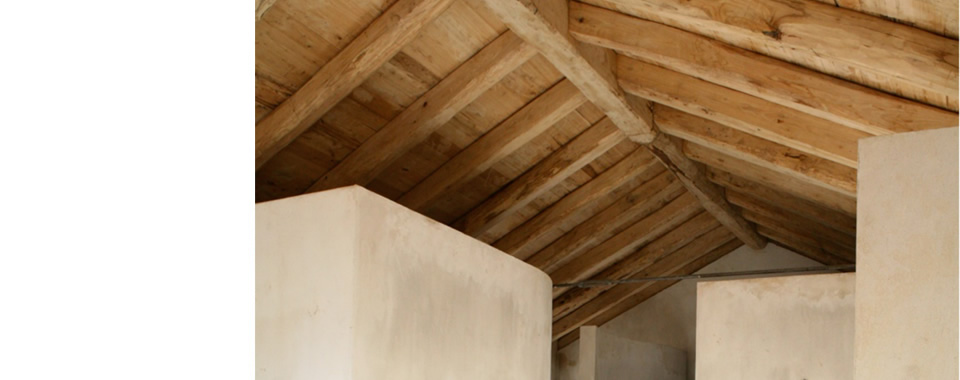

Score - Sustainable Construction in Rural and Fragile Areas for Energy efficiency
Guidelines for Integrated territorial Planning:
Solar thermal collector
The following guidelines come from a deep analysis of case studies, norms, and regulations, relating at both national and regional levels. This analysis is summarized in a card that can be downloaded in French language.
The solar panels are used to convert solar energy into thermal energy via a heat transfer fluid that is used to preheat domestic hot water used in buildings. In some cases this heat can be used to heat a pool or even provides part of the heating systems. In that last case, care must be taken to prevent system overheating in summer when there is no heating requirement. Different systems are available, the two dominant are flat plate collectors and vacuum sensors. The last one is more efficient but is also more expensive.The easiest systems are composed of a balloon located above the sensors, which operate on a natural way, without pump. The main disadvantage of this system is the limited storage for hot water. This system does not permit integration into the landscape.For other systems, pumps help the fluid to circulate to the storage tank which may be remote from sensors. The performance of these sensors depends on the latitude, in residential performance ranges from 40% of annual water heating needs in the north of France to 60% in the south. A properly sized system is to provide 100% of needs in the summer, otherwise there is risk of overheating and premature failure of the system. Self-draining solutions can reduce this effect of overheating, but all manufacturers do not offer those kind of solutions. However these systems are very advantageous and particularly in new buildings designed from 2012, where the part of the hot domestic water represents 50% of consumption of conventional buildings. There are also solar cooling systems. Calories captures during summer time are used to produce cold. This highly effective system, allow to link resource and needs. Unfortunately these systems, associated with absorption heat pumps require significant investment and are unfortunately not well known.The main difficulties lie in the integration of solar panels on roofs, which can become problematic in historical buildings.The Grenelle of the environment improved this aspect, limiting bans installation of solar panels for architectural reasons.
Indication for the bio-construction action plan
Pursuant to the guidelines written above, are here synthetically reported the criteria/examples for pilot projects to be financed in MED territory, in relation with the specific treated theme. These criteria/examples, together with the ones resulting from all the themes of eco-construction tool matrix, will make up a Bio-construction Action Plan for each partner countries. Solar energy is available on the Mediterranean; any solutions using solar energy should be encouraged. Hotels that have important needs for hot water should always have resource to this kind of technology. Incentives should be implemented for all new projects or major renovations.Projects to disseminate the principle of solar cooling, or financial aid would develop this promising technology in the Mediterranean region.
Case studies
Plateforme technique de l’Arbois
